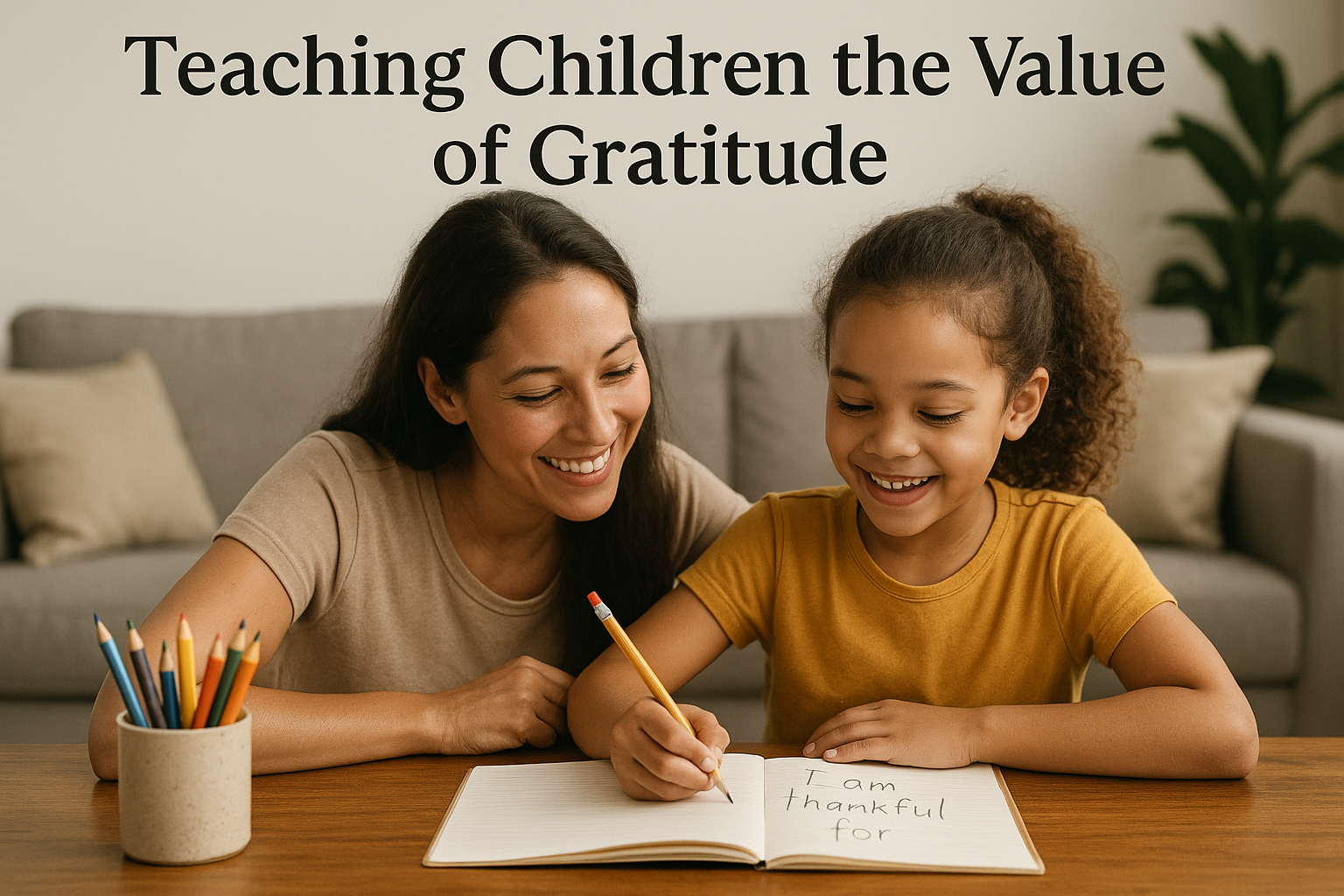In a world full of distractions and instant gratification, raising a grateful child can feel like an uphill battle. But gratitude isn’t just about saying “thank you”—it’s a powerful mindset that shapes how children see themselves, others, and the world around them.
Grateful children tend to be more:
- Resilient
- Kind and empathetic
- Optimistic
- Less materialistic
- Emotionally aware
Best of all, gratitude can be taught and practiced from a young age. Here’s how to help your child develop an attitude of appreciation—one day, one moment, and one thank-you at a time.
Why Gratitude Matters for Kids
Gratitude isn’t just polite—it’s deeply connected to emotional health.
Studies show that grateful children:
- Sleep better
- Experience fewer emotional outbursts
- Have better relationships with peers and adults
- Are more satisfied with life overall
Gratitude helps shift focus from what’s missing to what’s already good.
1. Model Gratitude in Everyday Life
Children learn by watching. Let them hear and see you express thanks regularly.
Say things like:
- “I’m really grateful for this warm meal.”
- “That hug made my day—thank you.”
- “I appreciate you helping with the dishes.”
When gratitude becomes a regular part of your own language, your child is more likely to mirror it.
2. Make Saying “Thank You” a Habit (But Not a Script)
While it’s important to teach polite expressions, avoid making them feel forced.
Instead of:
- “Say thank you right now!”
Try:
- “When someone gives us something or helps us, it’s kind to say thank you. Can you show your appreciation in your way?”
You’re teaching the meaning behind the words—not just the words themselves.
3. Create a Daily Gratitude Ritual
Making gratitude part of your routine turns it into a lifelong habit.
Ideas:
- Gratitude at bedtime: “What’s one good thing that happened today?”
- Gratitude at dinner: “What are you thankful for today?”
- Gratitude jar: Write or draw things you’re thankful for and drop them in a jar
- Gratitude walk: Talk about what you notice and appreciate on a walk outside
Repetition builds awareness—and appreciation.
4. Use Books and Stories That Emphasize Gratitude
Children connect deeply with stories. Choose books that highlight characters learning to appreciate what they have.
Some great books include:
- The Thankful Book by Todd Parr
- Those Shoes by Maribeth Boelts
- Bear Says Thanks by Karma Wilson
- Last Stop on Market Street by Matt de la Peña
After reading, ask open-ended questions:
- “Why do you think the character felt thankful?”
- “What are some things in your life like that?”
5. Encourage Giving and Helping Others
Gratitude often grows through generosity. Help your child experience the joy of giving.
Ideas:
- Donate toys or clothes they no longer use
- Make cards for family, teachers, or neighbors
- Volunteer together (even simple acts like picking up trash in a park)
- Encourage helping siblings or classmates
Serving others reminds children of the gifts they already have.
6. Acknowledge Effort, Not Just Stuff
Avoid making gratitude only about material things. Teach your child to notice and appreciate effort, time, and acts of kindness.
Say things like:
- “Grandma worked hard to make that meal.”
- “Your friend shared their toy with you. That was generous.”
- “Your teacher spent a lot of time helping you.”
This builds emotional awareness and empathy.
7. Practice Gratitude in Difficult Moments
Gratitude isn’t just for good days. Help your child find small bright spots even when things go wrong.
Examples:
- “It’s raining, but we get to stay cozy inside.”
- “You didn’t win the game, but I’m proud of how you played.”
- “It was a hard day, but I loved our cuddle time.”
This doesn’t mean ignoring negative feelings—it means looking for light, even in the dark.
8. Be Patient—Gratitude Is a Skill
Your child won’t always remember to say thank you or appreciate what they have. That’s okay. Gratitude is a practice, not a personality trait.
Instead of scolding:
- Gently remind: “Let’s think about what we can be thankful for today.”
- Ask questions: “What do you appreciate about your friend?”
- Celebrate when they show thankfulness naturally: “That was so thoughtful of you!”
Focus on progress, not perfection.
Gratitude Grows Through Connection
Ultimately, gratitude isn’t about being polite—it’s about being present, aware, and connected to the people and world around you.
By weaving small gratitude habits into your family’s daily life, you’re giving your child a gift that lasts far beyond childhood: the ability to notice what’s good, appreciate what’s enough, and spread that thankfulness to others.
And in a world that often tells us to want more, that’s a powerful legacy to leave.
